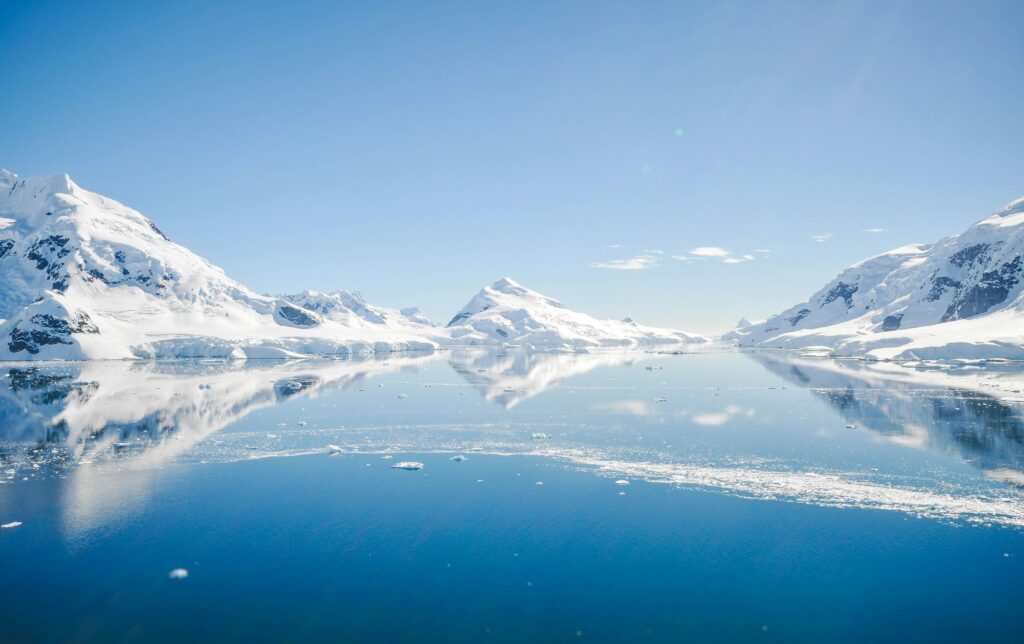
The collapse of the Antarctic ice sheet could contribute up to seven meters of sea level rise by 2300, a new Earth’s Future study finds. Credit: Unsplash/Henrique Setim
AGU News
AGU24 press registration
Press registration for AGU’s Annual Meeting is open! AGU24 will be held in Washington, D.C. from 9-13 December. Complimentary registration is available for journalists, journalism students, press officers, and institutional writers covering the meeting. Discounted housing is available through 11 November, but rooms are filling up quickly. [register here][eligibility][AGU24 press center][hotel information]
AGU honors Nadia Drake and Zack Savitsky with 2024 Journalism Awards
Honorees for all of AGU’s awards and lectures, and new AGU Fellows, are announced today. Journalists Nadia Drake and Zack Savitsky are the 2024 Journalism Award winners. Drake won the Sullivan Award for her National Geographic story on our search for extraterrestrial life, and Savitsky won the Perlman Award for his Science story on how hand magnets destroy meteorites’ magnetic data. [Journalism awards media advisory][browse all AGU 2024 honorees]
Featured Research
Large Antarctic ice sheet collapses expected by 2300
Melting of the Antarctic ice sheet may contribute up to 30 centimeters of sea level rise by 2100 under high emission scenarios, according to a new study. Between 2100 and 2300, ice melt could increase rapidly, culminating in the near-total collapse of the West Antarctic Ice Sheet, which would contribute up to seven meters of sea level rise. [Earth’s Future study]
More than 2 million acres of floodplain developed in past two decades
New research finds that 2.1 million acres of floodplain land were developed in the continental United States between 2001 and 2019, with roughly half of that occurring in Florida. The analysis, which used the first comprehensive dataset measuring national floodplain development outcomes at a community level, also found that most communities have put limits on new floodplain development. [Earth’s Future study][University of Miami press release]
New seismic study of the Los Angeles basin solidifies depth estimates
The risk of seismically induced shaking in a geologic basin, like those on which Los Angeles and Seattle are built, depends on the basin’s depth. New seismic data from across the Los Angeles basin confirm that the basin is more than 9 kilometers deep at its lowest point. The study provides the first basin-wide direct estimates of depth, improving older, less certain estimates. [Geophysical Research Letters study]
Exploring Hunga Tonga, the underwater volcano, from 16,000 kilometers away
Measurements of Hunga volcano’s crater continued for months after its 2022 eruption. [Eos research spotlight] [Geochemistry, Geophysics, Geosystems study]
###
Subscribe to TWFAGU and other AGU news